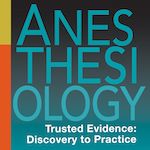Supreme Court case could threaten colorectal cancer screening access, ACG warns

Editor's Note The American College of Gastroenterology (ACG) is warning that millions of Americans could lose access to essential colorectal cancer (CRC) screenings if the Supreme Court rules against the role of the US Preventive Services Task Force (USPSTF) in guiding preventive care coverage. According to the organization’s March 7…
Researchers recommend extending colonoscopy screening interval for low-risk patients

Editor's Note Individuals with negative colonoscopy screening (NCS) results face significantly lower long-term risk of colorectal cancer (CRC) incidence and mortality, suggesting the recommended 10-year rescreening interval could be safely extended for low-risk populations, according to a study published in JAMA Oncology. Healio reported on the results January 15. As…
Study: Stool tests show promise in reducing colonoscopies for post-polypectomy colorectal cancer surveillance

Editor's Note Stool-based testing strategies could significantly reduce the number of colonoscopies required for post-polypectomy colorectal cancer (CRC) surveillance while maintaining equivalent long-term outcomes in cancer incidence and mortality, according to research published August 30 in Gastroenterology. Conducted in the Netherlands, the cross-sectional observational study compared three stool tests—multitarget stool…
Odin Medical’s AI-powered device for colonoscopy receives FDA clearance

Editor's Note Odin Medical, a subsidiary of Olympus Corporation, received Food and Drug Administration (FDA) 510(k) clearance for its cloud-based AI technology, the CADDIE™ computer-aided detection device, PRNewswire September 5 reports. Designed to assist gastroenterologists in detecting colorectal polyps during colonoscopy, the AI-powered system analyzes real-time video footage and alerts…
Colorectal cancer rates declining in older adults, rising among children, teens
Editor's Note A new study reveals a worrying trend: While colorectal cancer rates have been decreasing in older adults, they are significantly rising among children and teens, Healthline May 9 reports. The findings from this study will be presented on Monday, May 20, at the Digestive Disease Week conference in…
Propofol anesthesia for colonoscopy could help find polyps, prevent cancer

Editor's Note By putting the patient into deeper sedation during colonoscopy, propofol could help doctors find difficult-to-spot, potentially cancerous “serrated” polyps, according to a study published April 17 in Anesthesiology. As an alternative to moderate, “conscious” sedation, propofol facilitates a more thorough exam that is more likely to identify serrated…
Study: Propofol sedation increases colonoscopy costs without improving outcomes

Editor's Note Although the use of propofol for colonoscopy has been rising due to beliefs that deep sedation leads to greater patient comfort, a recent systematic review and meta-analysis of nearly 1,500 patients from nine randomized controlled trials shows this view is not supported by available evidence. Published March 8…
New gel protects tissue during gastrointestinal surgery

Editor's Note Researchers at MIT have developed a new gel called GastroShield to help prevent gastrointestinal bleeding during and after surgery performed during colonoscopy screenings. Advanced Materials published the findings on February 29. Colonoscopy screenings—undergone by some 20 million Americans each year—often result in doctors finding and removing polyps. These…
AI may improve colonoscopy accuracy
Editor's Note Researchers at Mayo Clinic Healthcare in London are investigating how artificial intelligence (AI) can be used to identify colon polyps that might otherwise get overlooked during colonoscopy. The AI system works alongside the physician in real time, scanning the colonoscopy video feed and drawing small, red boxes around…

 Free Daily News
Free Daily News